Spine Disorders and Back Pain
Most adults experience back pain from a spine disorder at some time in their lives, especially as they age. Back pain affects men and women equally. It can begin abruptly as the result of an accident or heavy lifting, or it can develop over time due to age-related changes in the spine.
At UTHealth Neurosciences, fellowship-trained neurologists, neurosurgeons, neuro-oncologists, interventional pain management specialists, and radiation oncologists work together to determine the care each patient needs, discussing treatment options as a group. This approach can save our patients time, and it allows our specialists to share each other’s insights, leading to better treatment decision-making and outcomes.
We first investigate options for nonsurgical treatment, including medical management, pain management, rehabilitation, “watchful waiting,” and physical therapy. When physical therapy is prescribed, we collaborate with experienced PTs within our clinics or in clinics nearby for your convenience. When surgery is needed, our neurosurgeons routinely employ innovative minimally invasive techniques. Throughout the treatment process, our team works closely with the doctor who referred you to ensure a smooth transition back to your regular care plan. While you are with us, you can expect expert care, excellent communication, and genuine compassion.
About the Spine
The spine is your body’s main support system, with 33 stacked vertebrae: seven cervical (neck), 12 thoracic (chest), and five lumbar (lower back), followed by five fused sacral vertebrae, and the coccyx, with four fused coccygeal vertebrae. Most back pain occurs in the lumbar spine, which includes five vertebrae referred to as L1 through L5. These five vertebrae support much of the weight of the upper body.
Round, rubbery pads called intervertebral discs maintain the spaces between the vertebrae and cushion the bones as you move your body. Ligaments hold the vertebrae in place, and tendons attach the muscles to the spinal column. Thirty-one pairs of nerves are rooted to the spinal cord; they transmit signals to the brain that allow you to control body movements.
A sedentary lifestyle can set the stage for low back pain. In many older adults, low back pain is associated with lumbar spondylosis, a medical term for the general degeneration of the spine that occurs with normal wear and tear and aging. In younger people, sprains and strains caused by overstretching or improper lifting are a common cause of back injury. Pain that lasts longer than three months is considered chronic.
Why Choose UTHealth Neurosciences?
Experience. Our fellowship-trained neurologists, neurosurgeons, pain management specialists, and neuro-oncologists are widely recognized as experts in their fields, diagnosing and treating the most complicated conditions that cause back pain.
Innovative Care. The team at UTHealth Neurosciences offers patients innovative technology and access to groundbreaking clinical trials. They are among the most experienced in their specialties, providing advanced treatments for spine disorders, from medical management to minimally invasive and stereotactic surgical procedures.
Outcomes. We consistently exceed benchmarks for length of stay and mortality, meaning that our patients recover well – and quickly – from surgery
Technology and Research. We use the most sophisticated equipment for the diagnosis and treatment of neurological conditions that cause back pain. Our patients also have access to the latest clinical trials.
Multiple locations. Physicians affiliated with UTHealth Neurosciences practice at campuses across the Greater Houston area, so you can access care close to home.
To learn more about the UTHealth Neurosciences Spine Center or to schedule an appointment, call (713) 486-8100.
Back Pain Specialists
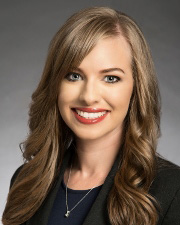 |
Ashley Amsbaugh, MD | Staff Physician | |
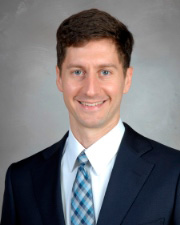 |
Mark Burish, MD | Assistant Professor | |
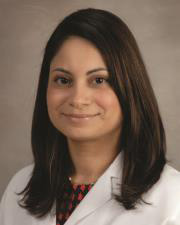 |
Nadya Dhanani, MD | Assistant Professor | |
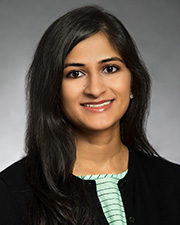 |
Hiral Patel, MD | Staff Physician | |
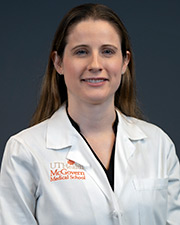 |
Stephanie F. Regenhardt, MD, PhD | Staff Physician |
Spine Disease and Back Pain
Arthrodesis
Artificial Disc Replacement
Cauda Equina Syndrome
Cervical corpectomy
Cervical disc disease
Cervical discectomy and fusion
Cervical herniated disc
Cervical laminectomy
Cervical laminoforaminotomy
Cervical radiculopathy
Cervical spondylosis (degeneration)
Cervical stenosis
Cervical spinal cord injury
Degenerative Disc Disease
Foraminectomy
Foraminotomy
Herniated discs
Injections for Pain
Kyphoplasty
Laminoplasty
Lumbar herniated disc
Lumbar laminectomy
Lumbar laminotomy
Lumbar radiculopathy
Lumbar spondylolisthesis
Lumbar spondylosis (degeneration)
Lumbar stenosis
Minimally Invasive Spine Surgery
Neck Pain
Peripheral Nerve Disorders
Radiofrequency Ablation
Scoliosis
Spinal cord syrinxes
Spinal deformities
Spinal injuries
Spinal fractures and instability
Spinal Cord Stimulator Trial and Implantation
Spinal Fusion
Spinal Radiosurgery
Spine and spinal cord tumors
Spine Surgeons
Spondylolisthesis
Stenosis
Tethered spinal cord
Thoracic herniated disc
Thoracic spinal cord injury
Transforaminal Lumbar Interbody Fusion
Vertebroplasty
Contact Us
At UTHealth Neurosciences, we offer patients access to specialized neurological care at clinics across the greater Houston area. To ask us a question, schedule an appointment, or learn more about us, please call (713) 486-8100, or click below to send us a message. In the event of an emergency, call 911 or go to the nearest Emergency Room.











